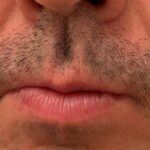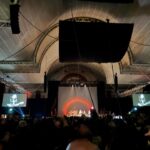I’m currently toying with the idea of doing some podcasting.
My problem at the moment is that I really don’t have a clue where to start in terms of equipment.
So what should I be using?
I know I could throw a lot of money down the drain very easily if I’m not careful, so if anyone has any recommendations to share I’d love to hear them.







I’d suggest some decent audio software first thats gonna let you chop and change up your audio files, namely Adobe Audition (formerly Cool Edit) or Digidesign’s Protools (available in LE also), both with excellent industry leading features and and easy to get to grips with 🙂
Ken
I’ll be using linux 🙂
I’m primarily interested in physical equipment for the actual audio recording
Michele
You’d actually have a very good voice for Podcasts Michele. Nice tone and timbre to it.
Damien – thanks 🙂
Tsk tsk tsk… Not up on audio software for linux os, but if its good physical hardware you’re after you can’t go wrong with a good mic to start with. I use a Shure SM58 for pretty much everything, fantastic vocal mic, runs around 80-90 euro depending on where you buy, but if its in your budget and you’re going to be distributing high quality podcasts it could be well worth it.
What should I be looking for in a microphone?
I’ll let media college tackle this one…
I just like the SM58s for the vocal performance of the mic, pretty much the high standard when it comes to vocals on stage or in a studio environment these days…
http://www.mediacollege.com/audio/microphones/choosing.html
Forgot to add this link, an old post I have but covers some nice mics on the market…
http://www.fxguidry.com/mictest1/
Ken
The SM58 seems to be a popular choice, so I’ve placed a bid on one on eBay 🙂
Michele
I’ve got four of them… you won’t be disappointed! Of course, if you’re not going to use a small mixing desk, you’re going to need an XLR to jack adapter as well (or XLR to mini jack if you’re using a basic soundcard)
Now he tells me 🙁
Aww… I’m sorry. Ok… if it was me doing the podcasting…
1 X SM58
1 X 5m XLR (male to female)
1 x Mic Stand with clip (around a tenner)
1 X Mixing desk (small 4 channel, pick one up new for a hundred bucks on thomann.de if you’re lucky, Behringer manufacture low-cost desks).
Stereo phono leads (to go from desk to the soundcard)
1 x Decent soundcard, or at least some decent audio software to compensate.
The reason for the stand is just for comfort, plus it’ll prevent you picking up any rubbing noises or letting the mic slip away from your hand or mouth.
If you’re avoiding the other physical equipment, the jack adapter should be fine… 🙂
I’ll have to doublecheck when I get home this evening, but I think my soundcard is a standard enough soundblaster.. Would that be ok?
I’ll skip the “extra” physical equipment for the moment, as I honestly don’t see how I could justify the expense for an experiment
should be grand. if its a regular sound card, make sure it has a ‘mic in’ socket (pink). if you’re going with the mic straight into it you’ll need to get a mini-jack adapter (headphone size). you can get a large jack to mini jack and fit it right in.
therefore, setup would be
mic > xlr lead > xlr to jack > jack to mini jack, unless you can pick up either
a) xlr to jack cable already made (thus avoiding the xlr>jack adapter)
or,
b) xlr to minijack, though the odds of them are slim enough.
you’ll prob pick up an xlr-jack cable easy, then use a large jack to mini-jack adapter so you’ve only one main conversion point
Ken – I actually found a cable that is designed for this specifically .. Now all I have to do is get the mic …
For my podcasts, I use an analog-to-digital converter that plugs via USB into my laptop. Makes it easy for me to do recordings at my piano, with one mic for me and one for the piano (I know, I know, a REAL recording would use at least mics for the piano). The device I use is a Yamaha UW-500, but I don’t think it’s available anymore. Works great, though. It came with XGworks Lite software, which is what I use to record the .wav file, and then I just load it into the standard Windows Sound Recorder app to save it out as a .mp3 file. Total cost for this setup was under $400, including the mics, cables and stands.
I have two podcasts, but the one I’m currently working on is Eric Giguere’s PsalmCast.
SM58s have become the defacto vocal mic but are built primarily for live performance application. Their frequency response and dynamic range works best in loud environments with screaming singers.
A small clip mic will do the job fine, compressing the lower frequencies and should plug into your computer’s miniplug audio in jack.
If ya wanna do something cooler, buy a large diaphragm studio mic like this one, they look cool, are built for quieter environments and will make you sound like Gerry Ryan. Of course, you’ll need a small audio set-up (XLR-USB/FW mixer, mic stand, XLR lead and pop filter), but the SM58 would have you doing that anyway.
Sean
As I actually bought the SM58 what would you recommend as a mic stand?
I still haven’t actually got round to doing any podcasting since I was having issues with audio on my linux desktop..
Michele